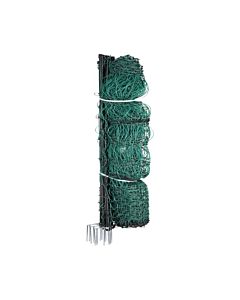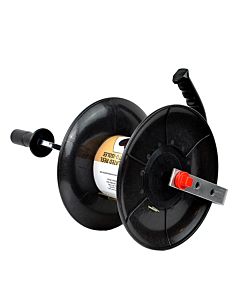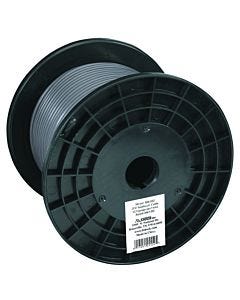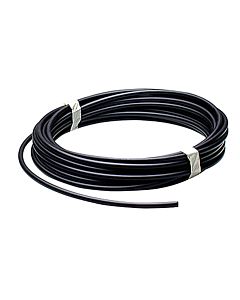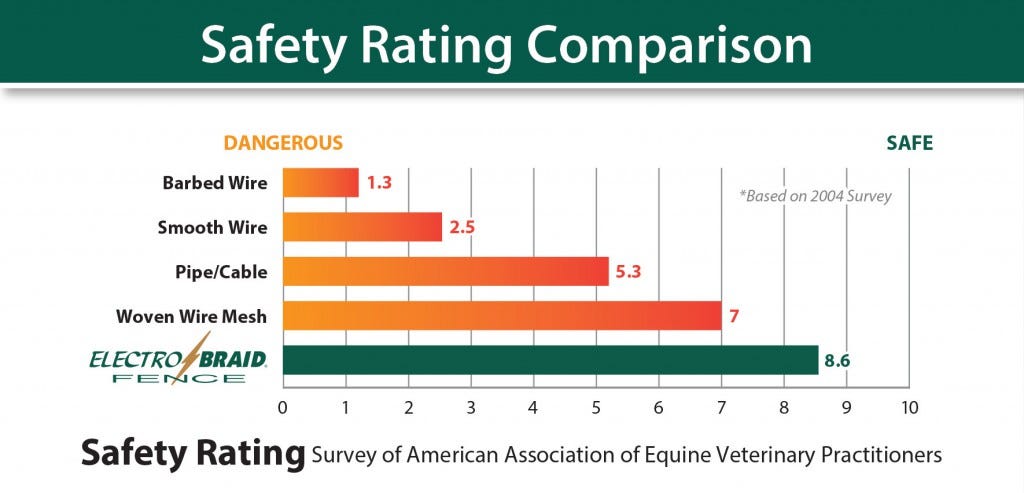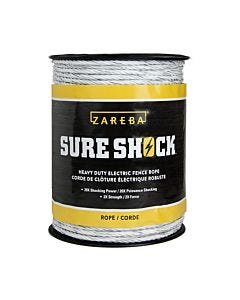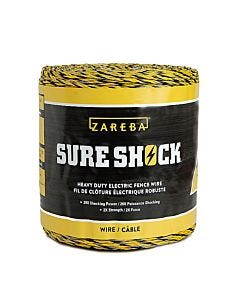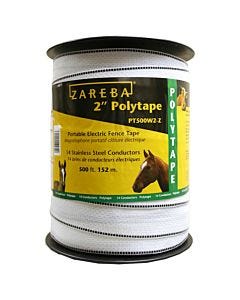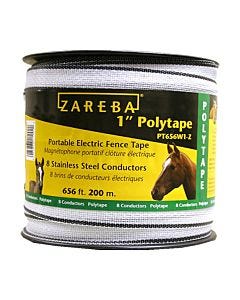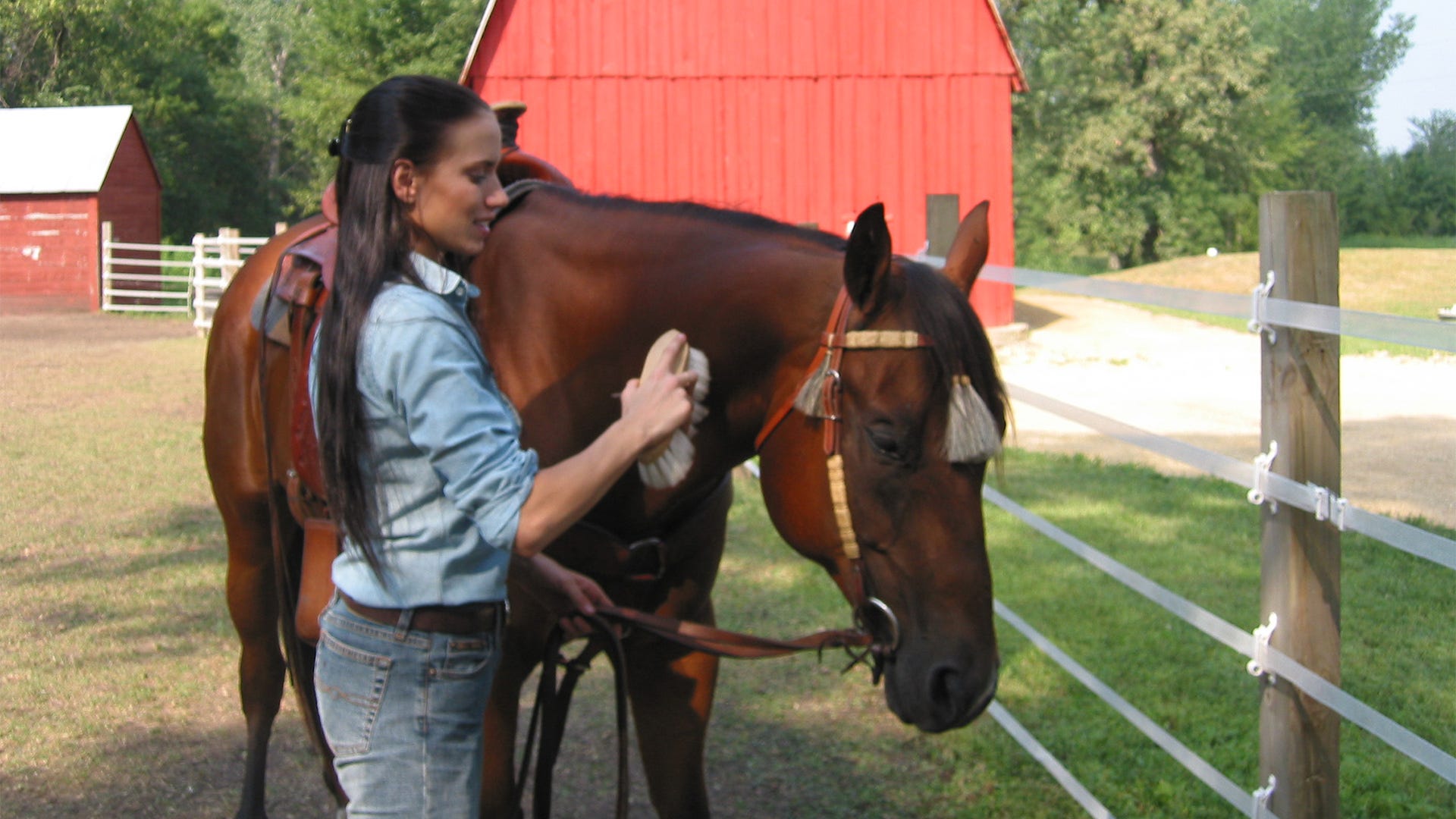
As you travel past horse farms, you’ll notice many types of fencing. With so many choices, it can be confusing to know which is the best among so many horse fencing options.
Horse Fencing Cost and Price Comparison
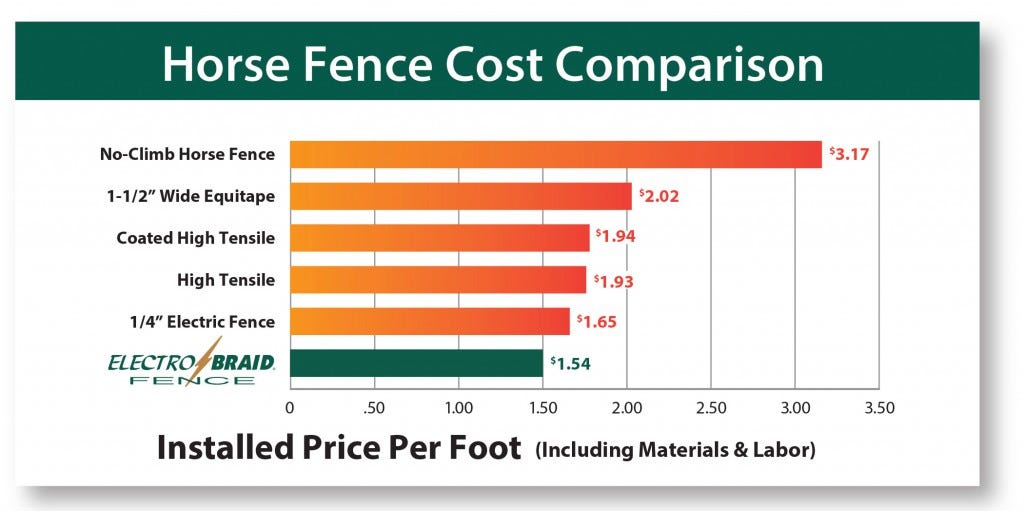
Horse Fence Wire
Smooth Wire • Woven Wire/Wire Mesh • V-mesh “No Climb”
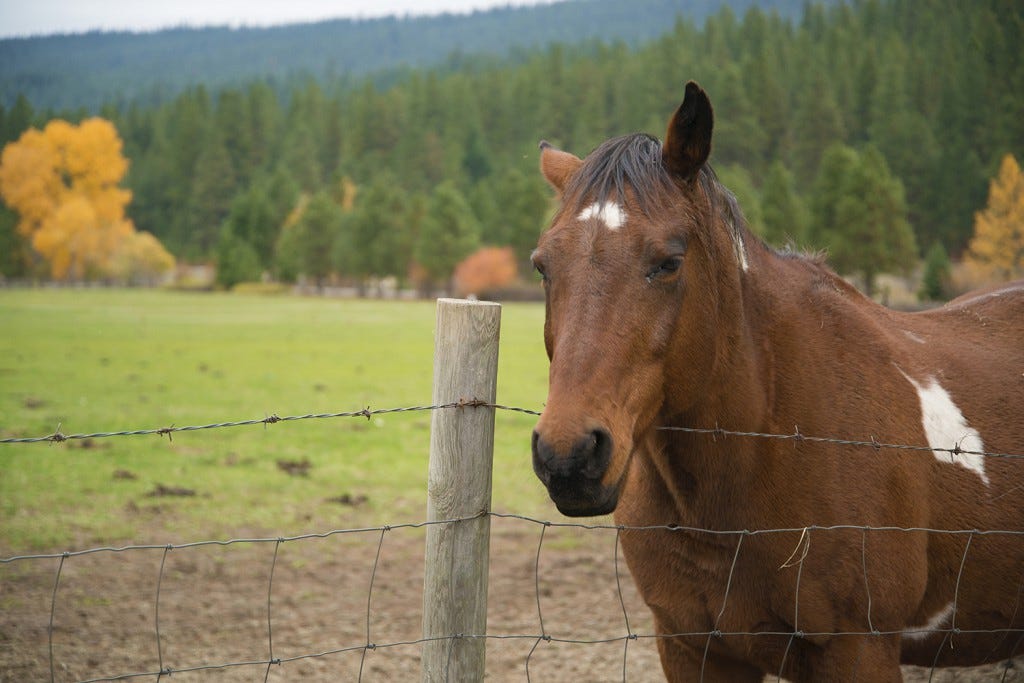
Advantages — Smooth and woven wire fencing is inexpensive to install. Types of wire include: High Tensile, Steel, and Aluminum.
Disadvantages — Wire fencing is difficult for horses to see, and high visibility is the most important safety factor for horse fencing. A collision with wire fencing is likely to cause cutting injuries. V-mesh diamond-pattern fencing is a safer type of wire fencing options since animals can’t put hooves or heads through it, but it is still difficult to see and it’s one of the most expensive of the wire fencing options.
Wire fences are physical barriers only and do nothing to dissuade horses from leaning or scratching on them, which adds to maintenance time, since it requires tightening routinely. To add visibility and discourage leaning on wire fences, add a highly visible electric strand like ElectroBraid® at the top.
Caveats — Barbed wire is not an appropriate fencing option for horses. Injuries a horse can sustain if entangled in barbed wire can be serious, even fatal.
SHOP WIRE FENCING
Electric Horse Fence
Woven Electric Tape • Electric Polywire • Stranded Electric Rope
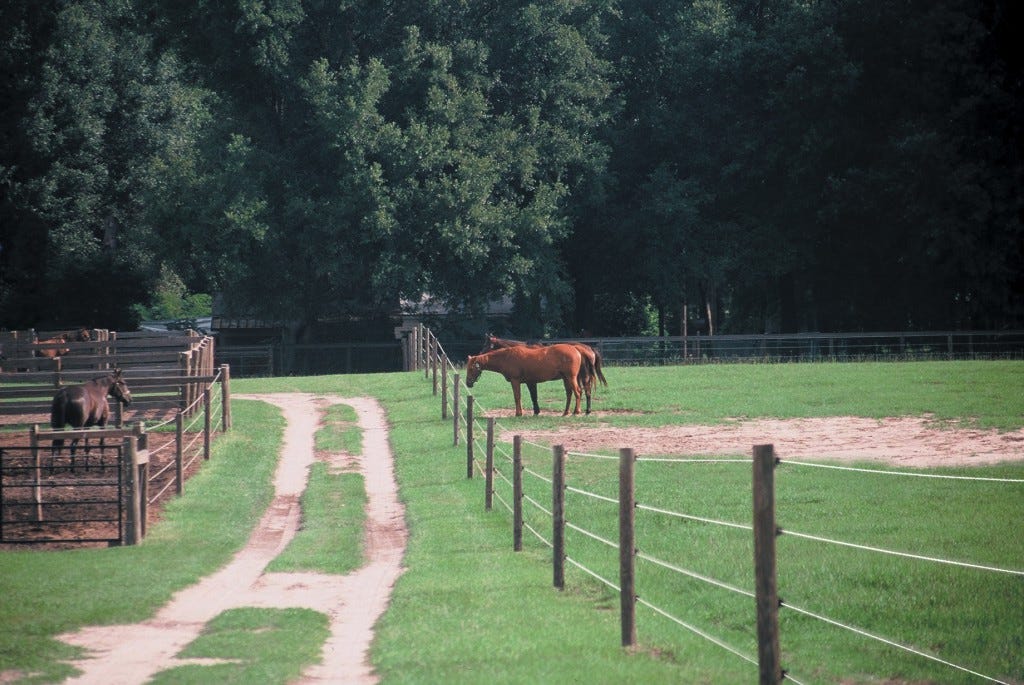
Advantages — Electric fences are a cost-effective fencing alternative and relatively easy to install. Electric fences also offer the effectiveness of serving as a psychological deterrent. They prevent horses from leaning or chewing on fence lines due to the unpleasant shock. Horses learn rapidly—usually with only one experience—to avoid the “hot” fence. ElectroBraid® is the most recommended horse fence for safety by veterinarians. It is highly visible, and unlike other electric fencing, ElectroBraid® is designed to absorb the impact of a panicked horse and contain them, much like a boxing ring. ElectroBraid® is covered by an exclusive 25-year warranty—longer than any other electric fence.
Disadvantages — Most electric fencing will not contain a horse if there is a collision (the exception is ElectroBraid which stops and contains horses when multiple strands are used). Electric polywire breaks easily and can cut like a knife. Electric tape uses parallel electric conducting wires that tend to break in windy conditions. Average stranded electric rope or braid unravels and needs constant tightening.
Caveats — Conventional high tensile wire (HTW) works well for cattle, but not for horses. Horses are excitable and high strung. If “spooked” into a HTW fence, the wire will break and possibly cause cuts or punctures.
Post and Rail Horse Fence
Wood • PVC • Pipe • Cable
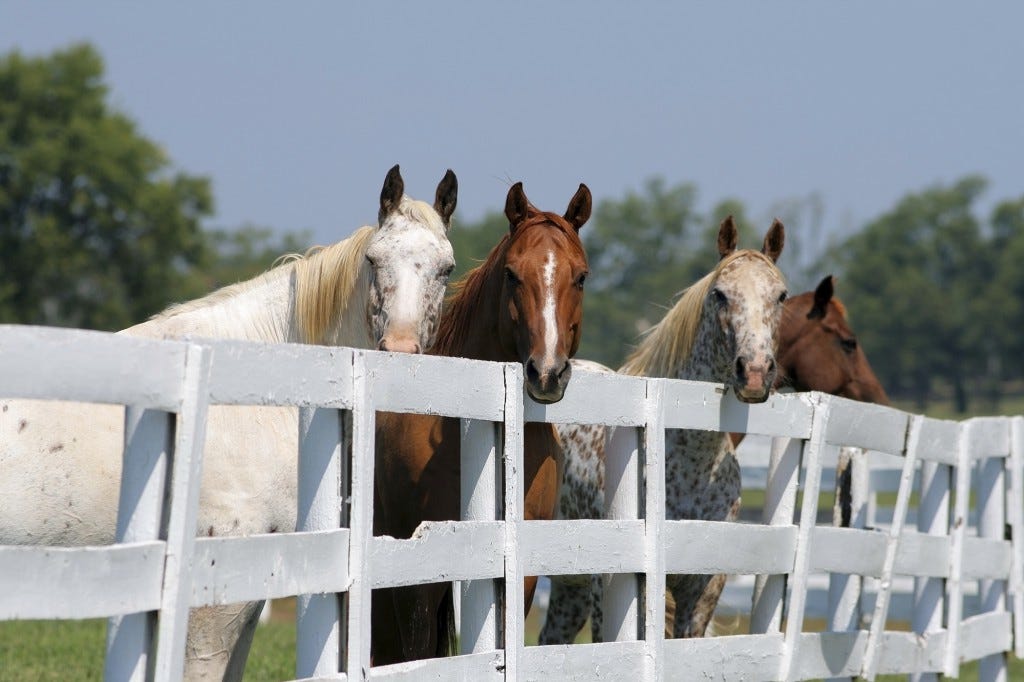
Traditional three- and four-board wood fences are a classic look for horse fences.
Advantages — Post and rail fencing are attractive, sturdy, and relatively long-lasting. It is usually easy for horses to see these boundaries.
Disadvantages — Whether the construction is wood, vinyl, or metal, these fences are rigid. That might be considered a good thing until you see the injuries and resulting veterinary bills after one of your horses is pushed into or is startled and runs into one. Ask your vet, and they’ll likely tell you the cause of most serious horse injuries is a collision with rigid fencing. Wood cracks and splinters into sharp points. Some vinyl/PVC fence is designed to break under pressure while some are reinforced with metal rails or stiffeners, which can add to safety concerns.
Rigid fencing is a physical barrier only and does not stop horses from leaning, pacing, and running the fence, or chewing or “cribbing” on the fence. Wood, vinyl, and pipe fences are also the most expensive and labor-intensive to install. Maintenance is another cost factor. While PVC and pipe fences require less maintenance, wood fencing requires continual upkeep. It requires painting, staining, or treating, and boards will need to be repaired or replaced due to weathering, splintering, or if your horses chew or “crib” on the rails.
Adding a strand of electric horse fence to the top, or inside border of your existing board fence works great as a protection measure for more expensive board fence investments:
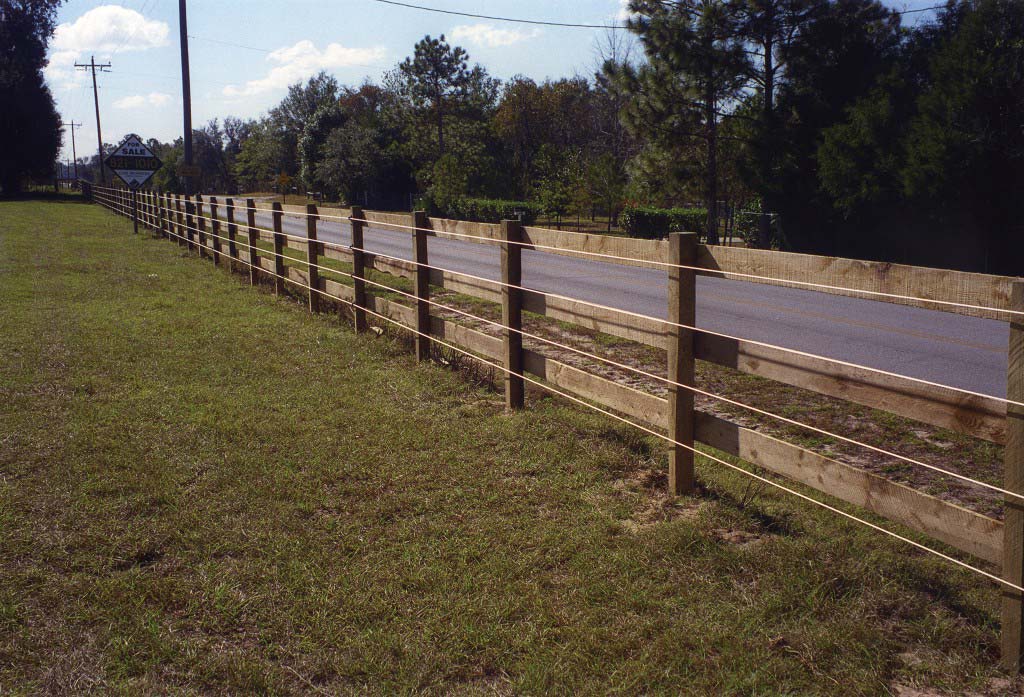
Caveats — Never use pressure-treated lumber to construct a horse fence due to its toxicity if horses chew on it.
No matter which types of horse fencing options you choose, the safety of your horses should always be the number one consideration.

